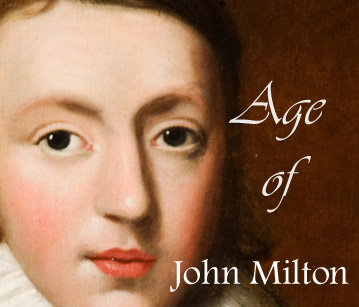Age of John Milton
Undoubtedly Milton is regarded as one of the greatest poets in English literature. He is second only to Shakespeare. He was born in London in 1608, and educated at Christ’s College, Cambridge. As a youth, Milton was very attractive, so at the College he was known as The Lady of Christ’s. He was a highly learned man who had made a thorough study of the Bible at home during his childhood.

After leaving the University, he studied at home in Horton. He lived a very moral and pure life. He was a very ambitions man who wanted to write something remarkable which would bring glory to his own country. In order to fulfill this great aim, he wrote Paradise Lost, which is comparable to almost all the great epic of classical writers. His literary works can be divided into three groups for convenience. At first, he wrote his shorter poems at Horton. Next, came his prose work inspired by his Puritanism and his political sympathies. His three greatest works belong to the last group.
First Group- Shorter Poems
At Horton, Milton studied Greek, Latin, English, French, and Italian poets. His pastoral shorter poem L Allegoro (the happy man) describes the joy of life in the country in spring season. The IL Penseroso (the thoughtful man) describes his study during the day and his visits to a church in the evenings of autumn season. Milton also wrote many sonnets and lyric poems. ‘On Shakespeare’ and ‘On His Blindness’ are his famous sonnets. The second one is his autobiographical poem written after his blindness. Lycidas is a sorrowful pastoral on the death of his college friend Edward King.
Second Group- Prose Work
Milton’s prose work belongs to his second group of his work. They are mainly concerned with church affairs, divorce and freedom. His best prose work is probably The Areopagitica, A Speech for the Liberty of Unlicensed Printing. In this work Milton is pleading for the freedom of expression. This is good writing and it contains little of the violent language of the other pamphlets. Calm reasoning and smooth word go together, and the style is fairly simple. During the English Civil War, he supported Cromwell and his parliamentarians through his political pamphlets.
Third Group- Three Greatest Poems
It was only after the Restoration of Charles II that he wrote his best works. By that time he had become blind and was out of favour. He wrote the Paradise Lost, a great epic about the fall of Man through his disobedience of God. It was written in beautiful blank verse and in twelve books. It shows his deep religious faith, great learning, and fine command over the poetic skill. The scene is the whole universe, including Heaven and Hell. Milton’s style is known as the grand style which has suggestive power. Sometimes some unfamiliar words and constructions have also been used.
Milton wrote another great poem titled Paradise Regained. It is more severe but less splendid than his first epic poem. Samson Agonistes is a tragedy on the Greek model. It describes the sorrowful last days of a blind prisoner, Samson in the hands of the Philistines. Some of the sorrowful expressions of Samson reflect Milton’s own personal feelings.
Lyric Poets
Apart from John Milton there were other several lyric-writers who have left us sweet songs. One of them was Richard Lovelace, who wrote To Althea, from Prison and To Lucasta, on Going to the Wars. One of the best living lyric poets of that time was Robert Herrick. He writes well about the English country and its flowers. His love songs are also sweet.
At about this time Edmund Waller wrote some of the earliest heroic couplets, a form of verse which was widely used in the next hundred and fifty years. In this meter a couplet is a pair of lines, rhyming and of five iambic feet. Waller wrote His Majesty's Escape in the meter and he has been honoured for inventing the heroic couplet, but there are other poets for whom the claim is made. They include Shakespeare, who wrote in Othello, long before Waller's poem.
